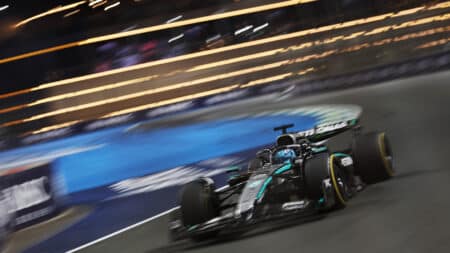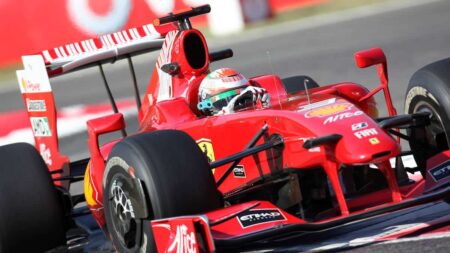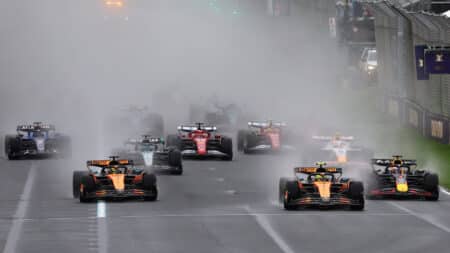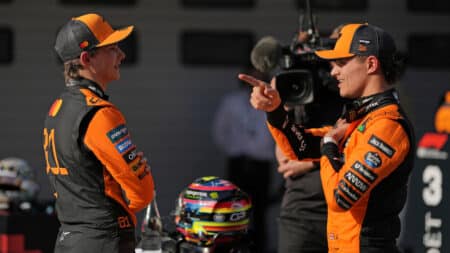Civil unrest has led to the cancellation of the first Formula 1 Grand Prix of the season in Bahrain. The decision has been taken by the Crown Prince Salman bin Hamad Al Khalifa, who has stated that his country must “focus on immediate issues of national interest and leave the hosting to a later date.” The race was due to take place on March 13. The F1 season will now begin in Australia on March 27.
Our correspondent Rob Widdows posted the blog below, before the cancellation of the Bahrain GP had been confirmed.
At the time of sending this dispatch there remains a great deal of uncertainty over the running of the first Grand Prix of the year in Bahrain on March 13.
Unless you have been living in a cave for the last few weeks, you will know that unrest in Tunisia and in Egypt has gathered pace across the Arab world, including the Kingdom of Bahrain where there have been riots in the capital city of Manama.
A decision on whether or not to run the race must be made this week if those involved are to get themselves organised. But this is not a decision for Bernie Ecclestone, it is a decision that must be made by the Crown Prince of Bahrain himself, for it is he who will best understand the safety – or otherwise – of his kingdom. And it is he who has been the driving force behind bringing Formula 1 to the Gulf, not to mention the investment his country has made in the McLaren Group. This will not be an easy decision.

Grand Prix racing is not what is important here, nor is its future at stake. There are 19 other races on the 2011 calendar. Global politics, and the stability of Bahrain society, are what are important, not least because the little desert kingdom is absolutely in alliance with both Britain and the United States. The Grand Prix is but one small, and recent, example of Bahrain’s wide-ranging connections with the outside world.
The Sakhir circuit is some way from the centre of Manama, out in the desert on the way to the beach resort of Zallaq, making it more of a challenge to protect the great and good of F1 from potential kidnap or attack. All things considered, circumstances are not ideal for a major international sporting event.
But this is not only about politics – it is almost as much about money. Ecclestone is handsomely rewarded for taking his business to Bahrain, just as the kingdom is rewarded with global exposure and not a few incoming dollars. Unlike Abu Dhabi, whose wealth is virtually without limit, Bahrain does not have such deep resources under the desert sand. It is not a poor country, far from it, but it needs F1 like it needs the international banks, investment houses, oil companies and hotels that will be the foundation of its wealth in decades to come.
There will be teams who’ll be pleased to do one less race, relieved to gain further development time. But should the race be cancelled, the leading players will have to wait even longer to find out how far they have caught up with the Red Bulls. The money will be of secondary importance, this being a fraction of the whole compared to the disruption of schedules and the risk of taking such an extravagant circus into a city filled with disgruntled natives.

At this stage, one thing is sure. The Crown Prince will be working very hard indeed to bring his country under control in time for the safe arrival of a sport of which he is such a passionate enthusiast. He and his ruling family will be equally keen to show the rest of the world, in particular the UK and the USA, that their investments are safe, that Bahrain knows how to restore order to such a strategically important Gulf state. Of course we all want the race to go ahead, to see the cars come out to play after the winter, but for once F1 must play second fiddle to peace in a volatile world. And if there are two areas upon which Bernie Ecclestone has a firm grasp, they are surely money and politics.






